December 10, 2024
First Camsur, then Catanduanes: For these Tzu Chi Bicol volunteers, helping is automatic
By Joy Rojas
They’re now back in their respective homes in Tabaco, Albay, but from late October to the first week of December, Tzu Chi Bicol volunteers Tess Reyes, Jocelyn “Jo” Chua, Analisa Amaranto, and Naty Candano were mostly on the road, participating in extensive relief operations for families affected by typhoons Kristine (Trami) and Pepito (Man-Yi).
Involved in every step of the way, they conducted ocular inspections in communities still submerged in mud and flood water, then coordinated with local government leaders for the distribution of claim stubs and sacks of 10-kg rice to thousands of storm survivors.
Having just wrapped up eight days of rice relief for over 9,000 beneficiaries in the municipalities of Baao, Bula, Milaor, and Nabua in Camarines Sur, they learned that Tzu Chi was planning a rice relief in Catanduanes. The island province east of Camarines Sur was where Typhoon Pepito made landfall on the evening of November 16. Strong rains and blustering winds uprooted trees, destroyed homes, and left thousands displaced.
“I think it’s a calling,” says Amaranto of why she had no qualms about joining another relief distribution soon after. “Maybe it was a coincidence or destiny that I happened to be available too.”
“I don’t know what it is about Tzu Chi that we’re always on the go,” says Candano with a laugh. “It’s automatic for us.”
“When Naty, Jo, and I talk about Tzu Chi’s relief, it’s automatic,” agrees Reyes. “We’re always there, from start to finish.”
“If no one will do it, who will?” says Chua.
Traveling three hours by ferry from the Tabaco Port in Albay to the San Andres Port in Catanduanes on November 26, the volunteers and Tzu Chi Bicol staff member Karen Palermo spent two days surveying the devastation caused by Pepito in the island’s 11 municipalities. From a meeting with provincial governor Joseph Cua, they identified Viga, Panganiban, and Gigmoto as the municipalities that would receive relief.
“It was pitiful,” recalls Reyes, the group’s photographer, of once lush landscapes now resembling a barren desert. Holding back tears, she shares how she saw her own mother in a 90-year-old woman staying in a makeshift home in Panganiban, the hardest hit of the municipalities. “There was very little left of her house. It’s mostly exposed, just put together using scraps of materials. A cabinet served as her wall.”
Panganiban was also where an unexpected downpour and brownout on November 30 interrupted the release of claim stubs that stretched to the evening. Still, it was a minor setback for Tzu Chi volunteers, who simply used the flashlights on their cellphones to continue working.
Eventually, they stopped when their driver, fearing a landslide, prevailed upon them to continue the following day.
It proved a good decision. As the driver predicted, a landslide did occur overnight, making the road back to Panganiban unpassable. While the rest of the volunteers headed to Gigmoto for their claim stub release, Candano and Chua walked the muddy, slippery path to Panganiban to resume their stub distribution.
“There were still a lot of people waiting for us,” says Candano. “It took us more than two hours before we were able to join the volunteers in Gigmoto.” Along the way, Candano counted eight landslides, some leaving just enough room on the road for their vehicle to pass.
Such efforts did not go to waste. In Gigmoto, 1,614 families with partially damaged homes each received a 10-kg sack of rice, while 378 families with totally damaged homes each received 10 pieces of 10-ft. galvanized iron (GI) sheets and a kilo of umbrella nails along with their 10-kg sack of rice.
In Panganiban, 731 families each received a 10-kg sack of rice and 219 families with totally damaged homes were each given GI sheets and umbrella nails in addition to sacks of rice. In Viga, 1,069 families each claimed a 10-kg sack of rice, and 355 families with totally damaged homes reach received GI sheets and umbrella nails together with their 10-kg sack of rice.
Like the many relief distributions before it, this one was as moving to the beneficiaries as it was for the volunteers. When a man who was claiming his GI sheets and nails approached Tzu Chi Bicol head volunteer Antonio “Tony” Tan to show him a picture of his home now in ruins, tears flowed, both from the loss of something valuable and in gratitude for the help.
“I must say the power of our female volunteers is different,” observes Tzu Chi Bicol staff member Karen Palermo. “Despite the roles they take on, from being the heart of their families to the backbone of their businesses, they step away from these responsibilities to help others. Their courage determination, and commitment are inspiring.
“I think they are not just fulfilling a duty, but are driven with a purpose far greater than their own personal gains.”
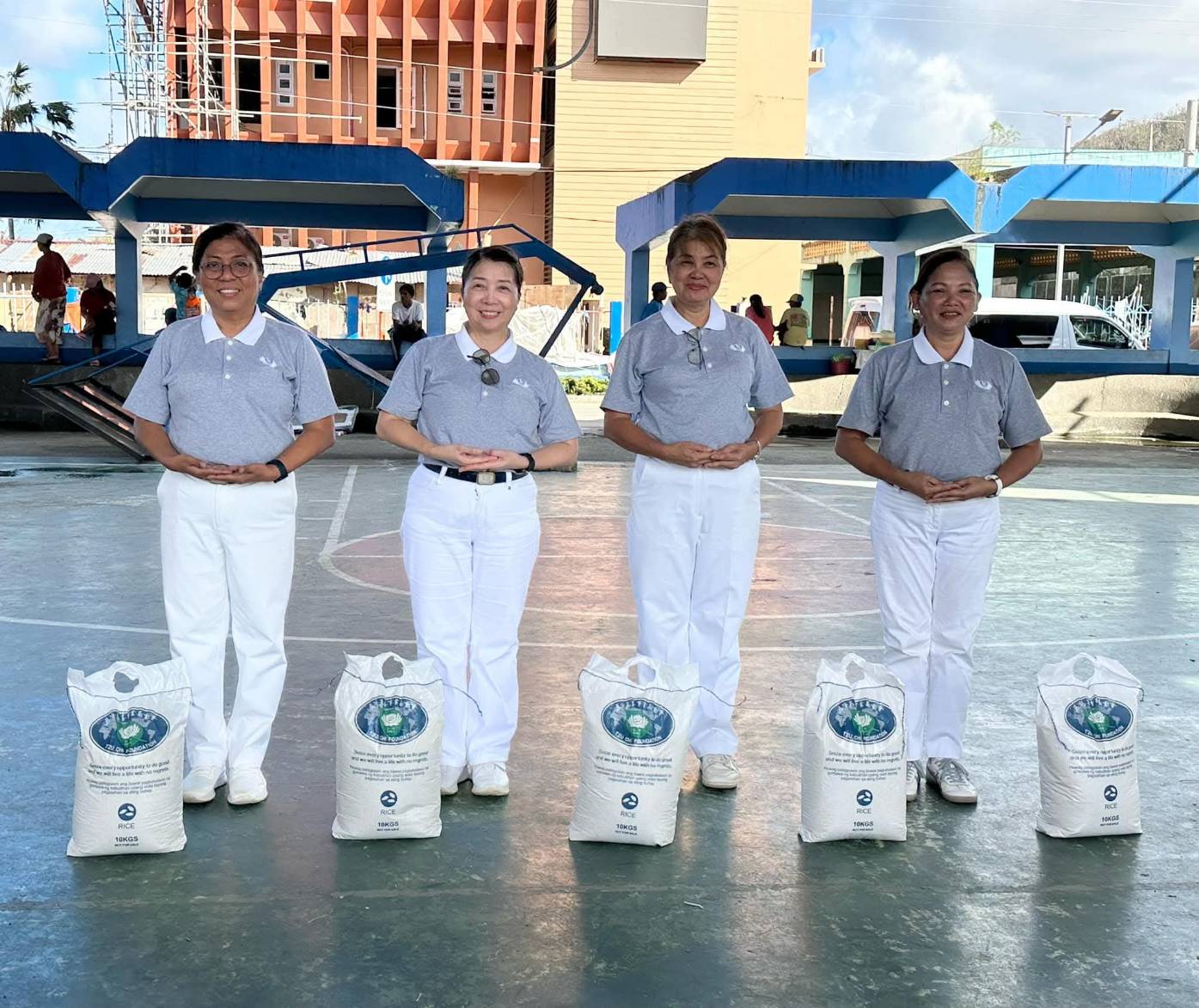 From left: Tzu Chi Bicol volunteers Tess Reyes, Jocelyn Chua, Naty Candano, and Analisa Amaranto participated in relief work in Camarines Sur and Catanduanes following typhoons Kristine (Trami) and Pepito (Man-Yi).
From left: Tzu Chi Bicol volunteers Tess Reyes, Jocelyn Chua, Naty Candano, and Analisa Amaranto participated in relief work in Camarines Sur and Catanduanes following typhoons Kristine (Trami) and Pepito (Man-Yi).
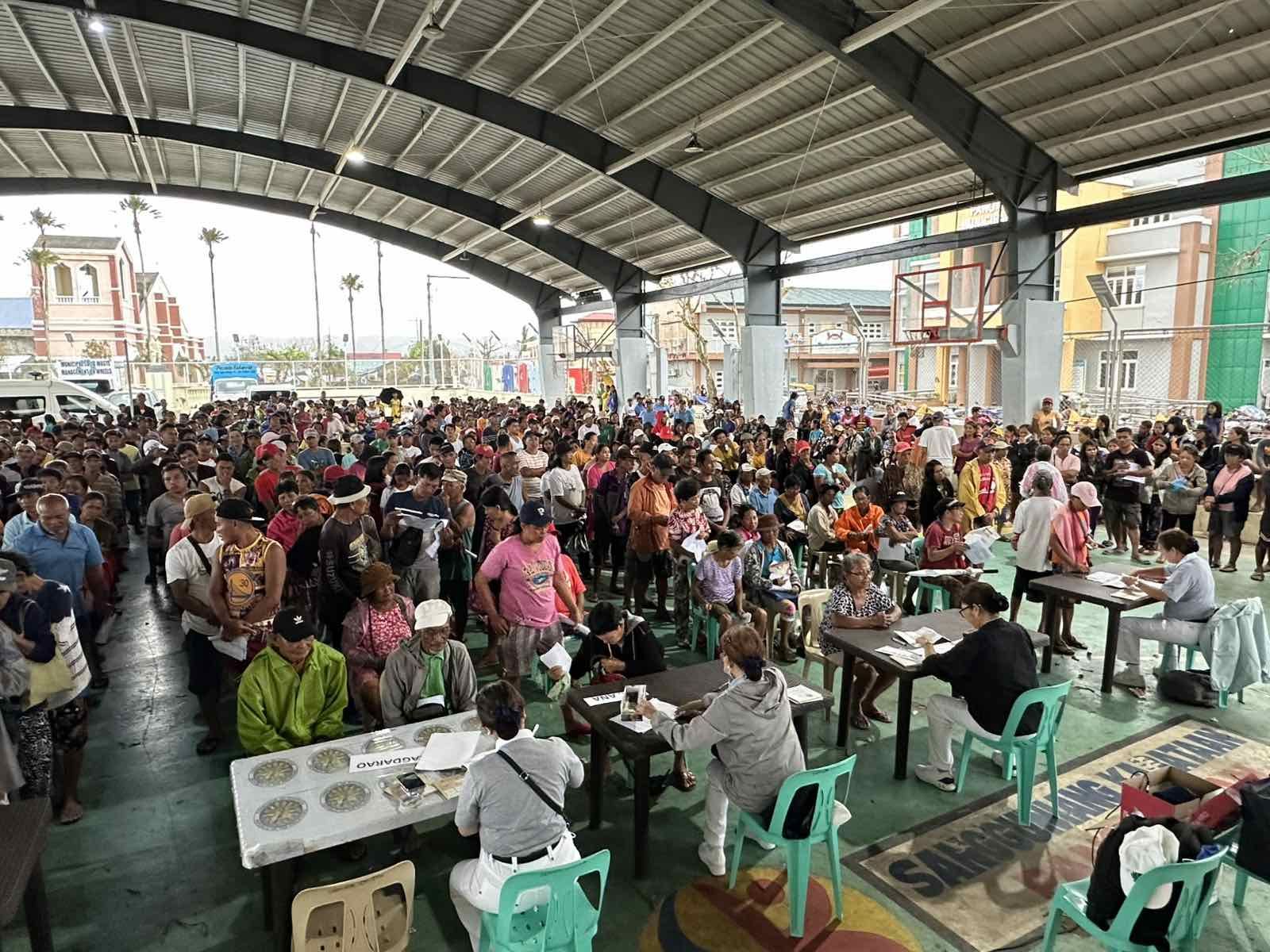 Residents from Panganiban, Catanduanes gather at their local covered court to claim their relief stubs from Tzu Chi volunteers.
Residents from Panganiban, Catanduanes gather at their local covered court to claim their relief stubs from Tzu Chi volunteers.
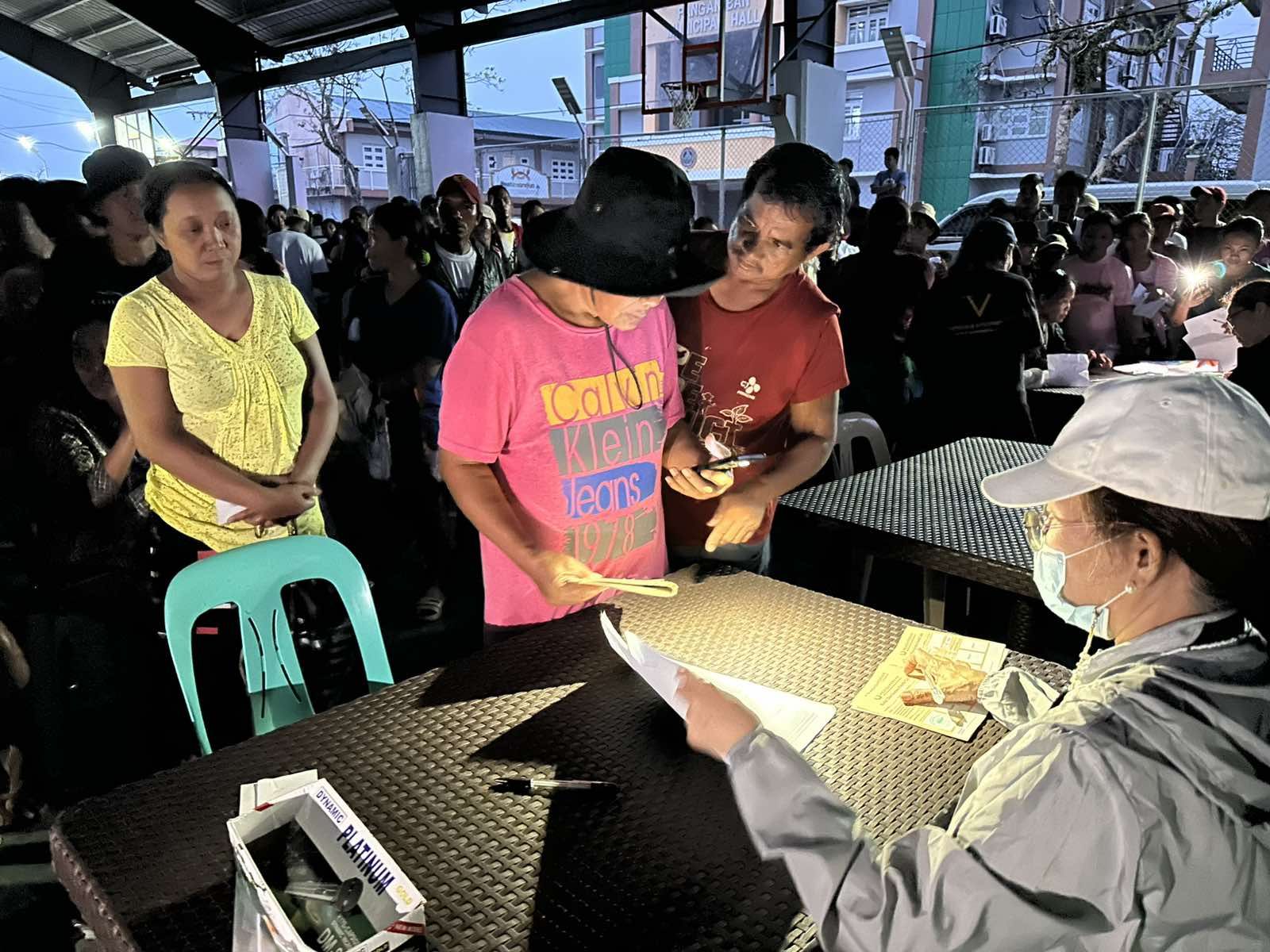 The release of claim stubs proceeded in Panganiban, even during a sudden downpour and brownout. Tzu Chi volunteers simply used the flashlight of their cellphone and continued to work.
The release of claim stubs proceeded in Panganiban, even during a sudden downpour and brownout. Tzu Chi volunteers simply used the flashlight of their cellphone and continued to work.
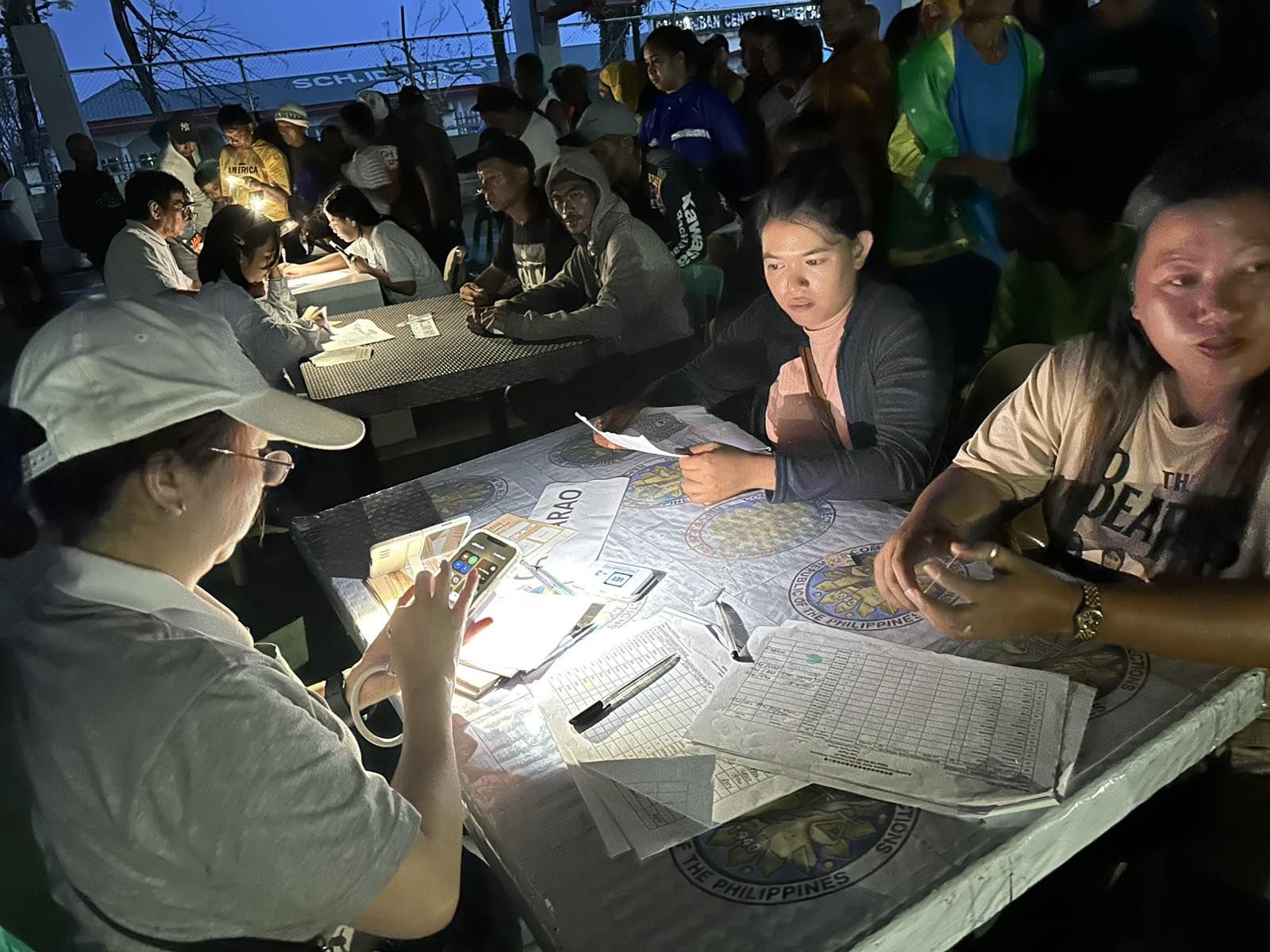 When strong rains and a brownout hit Panganiban, residents and Tzu Chi volunteers relied on cellphone flashlights to facilitate the release of claim stubs.
When strong rains and a brownout hit Panganiban, residents and Tzu Chi volunteers relied on cellphone flashlights to facilitate the release of claim stubs.
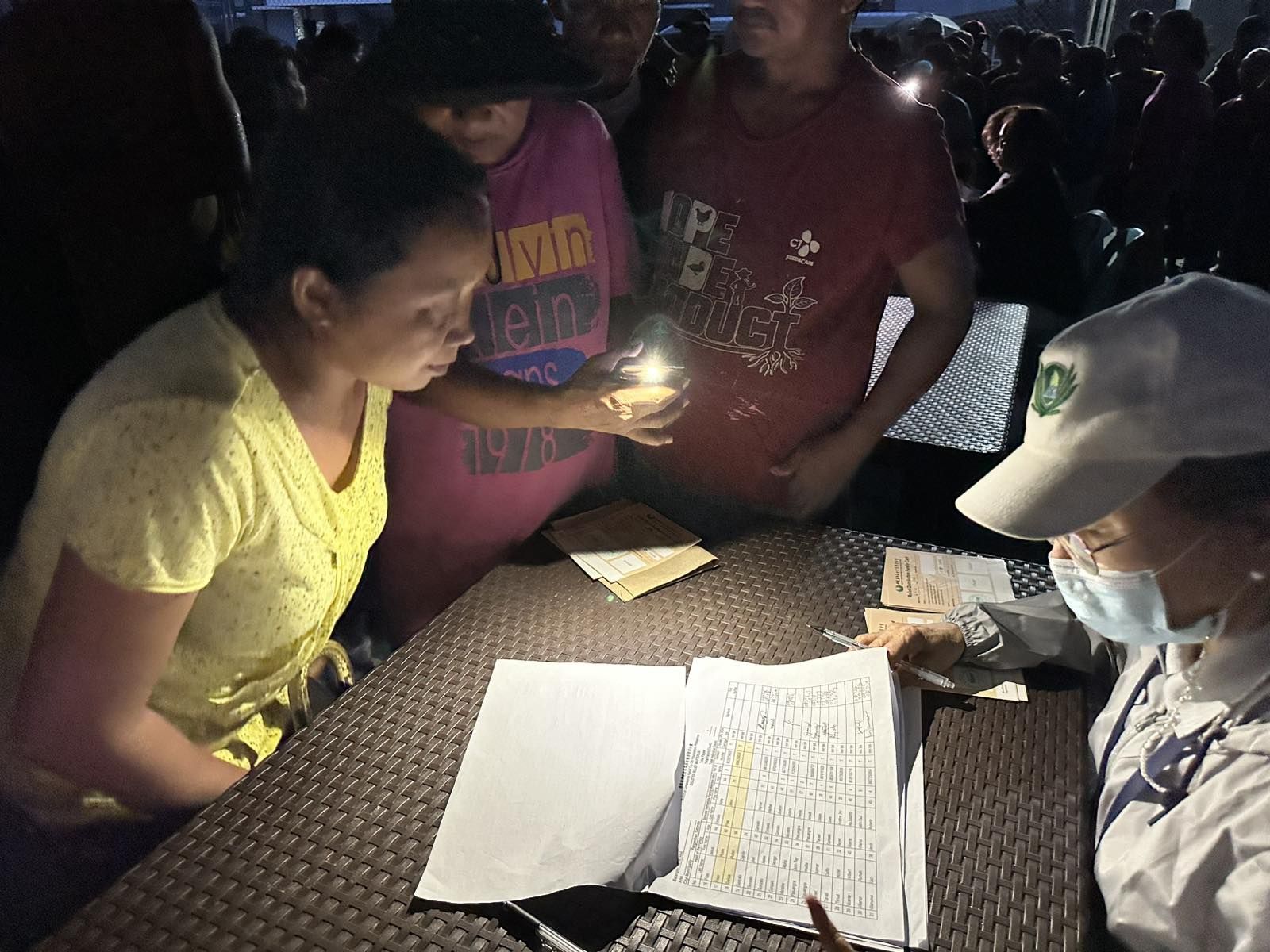 A Tzu Chi volunteer checks her list for the name of a Panganiban resident while a man uses his cellphone flashlight to help.
A Tzu Chi volunteer checks her list for the name of a Panganiban resident while a man uses his cellphone flashlight to help.
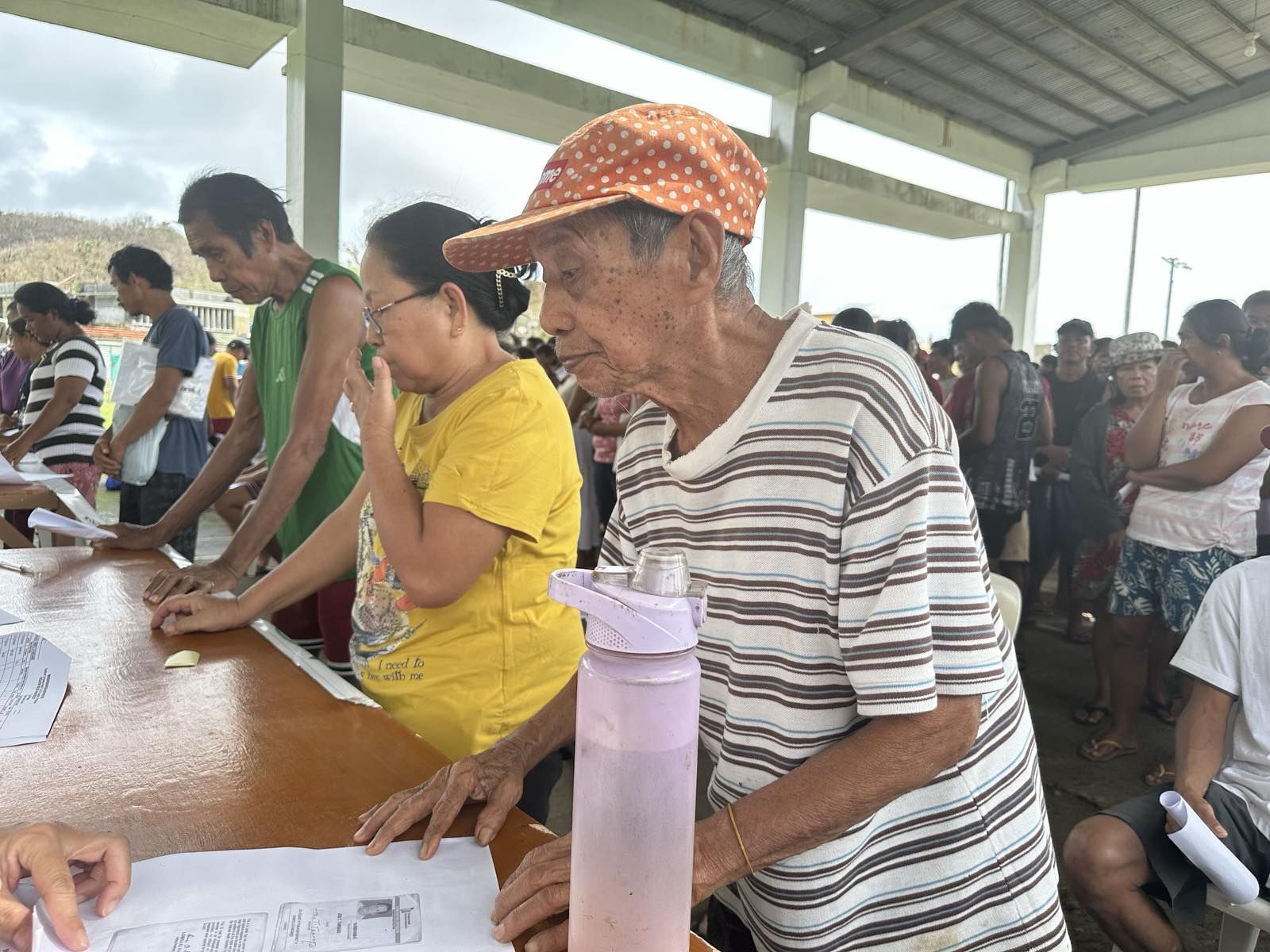 In Gigmoto, residents line up in an orderly fashion during the release of their claim stubs.
In Gigmoto, residents line up in an orderly fashion during the release of their claim stubs.
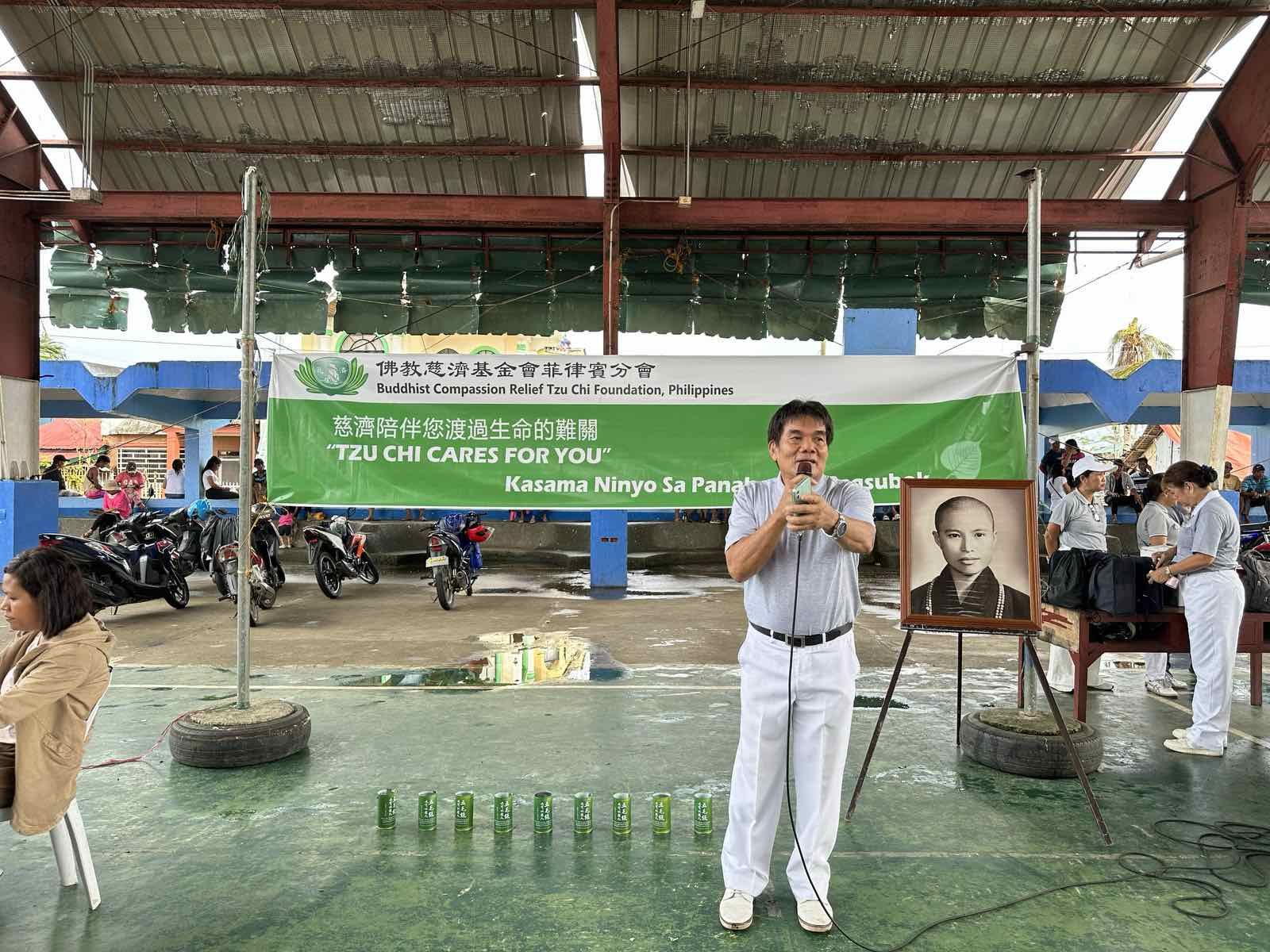 Tzu Chi volunteer Norman Binalla explains the importance of the Tzu Chi coin can to residents of Viga.
Tzu Chi volunteer Norman Binalla explains the importance of the Tzu Chi coin can to residents of Viga.
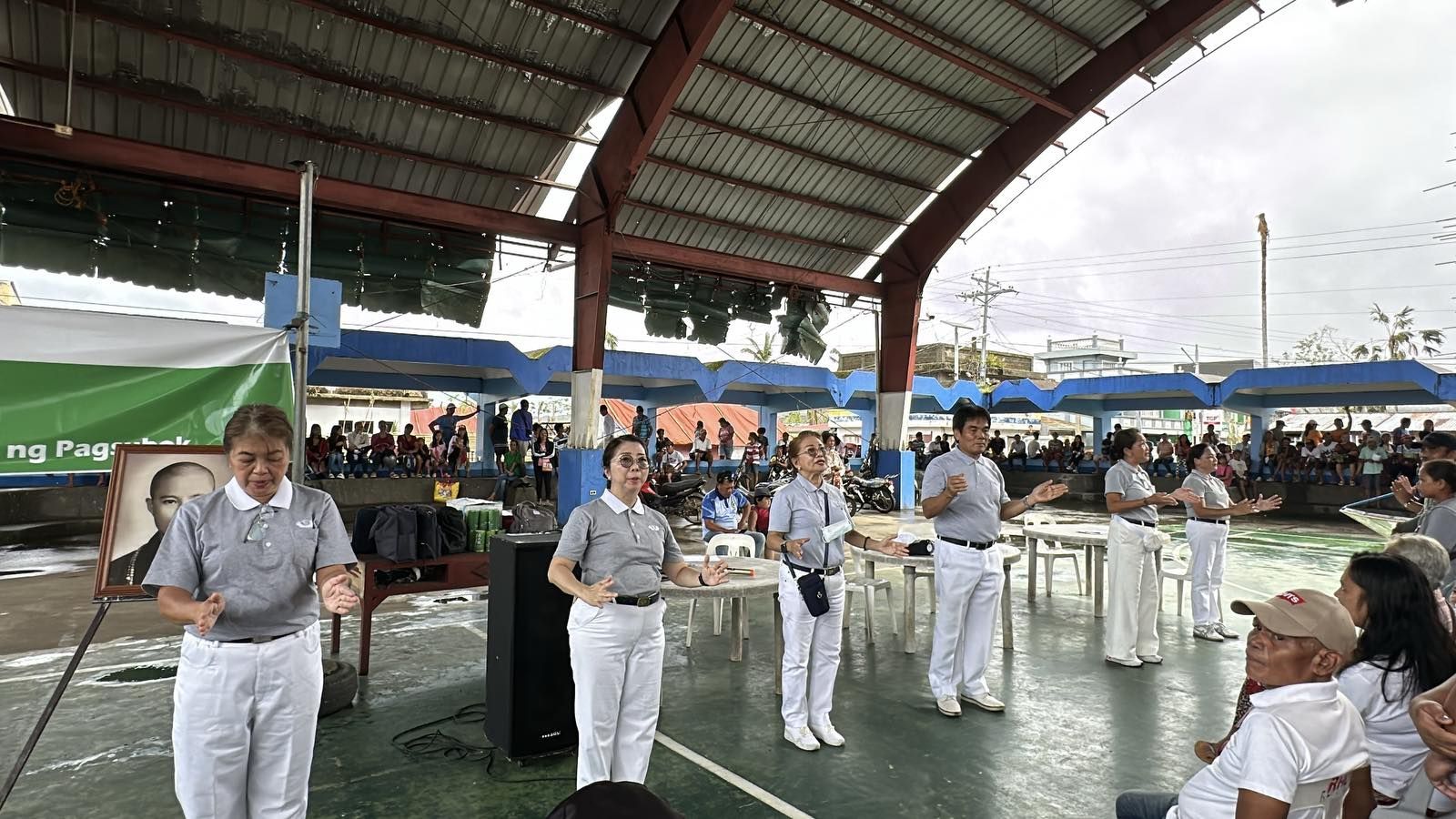 Volunteers lead residents in Viga to a signed Tzu Chi song.
Volunteers lead residents in Viga to a signed Tzu Chi song.
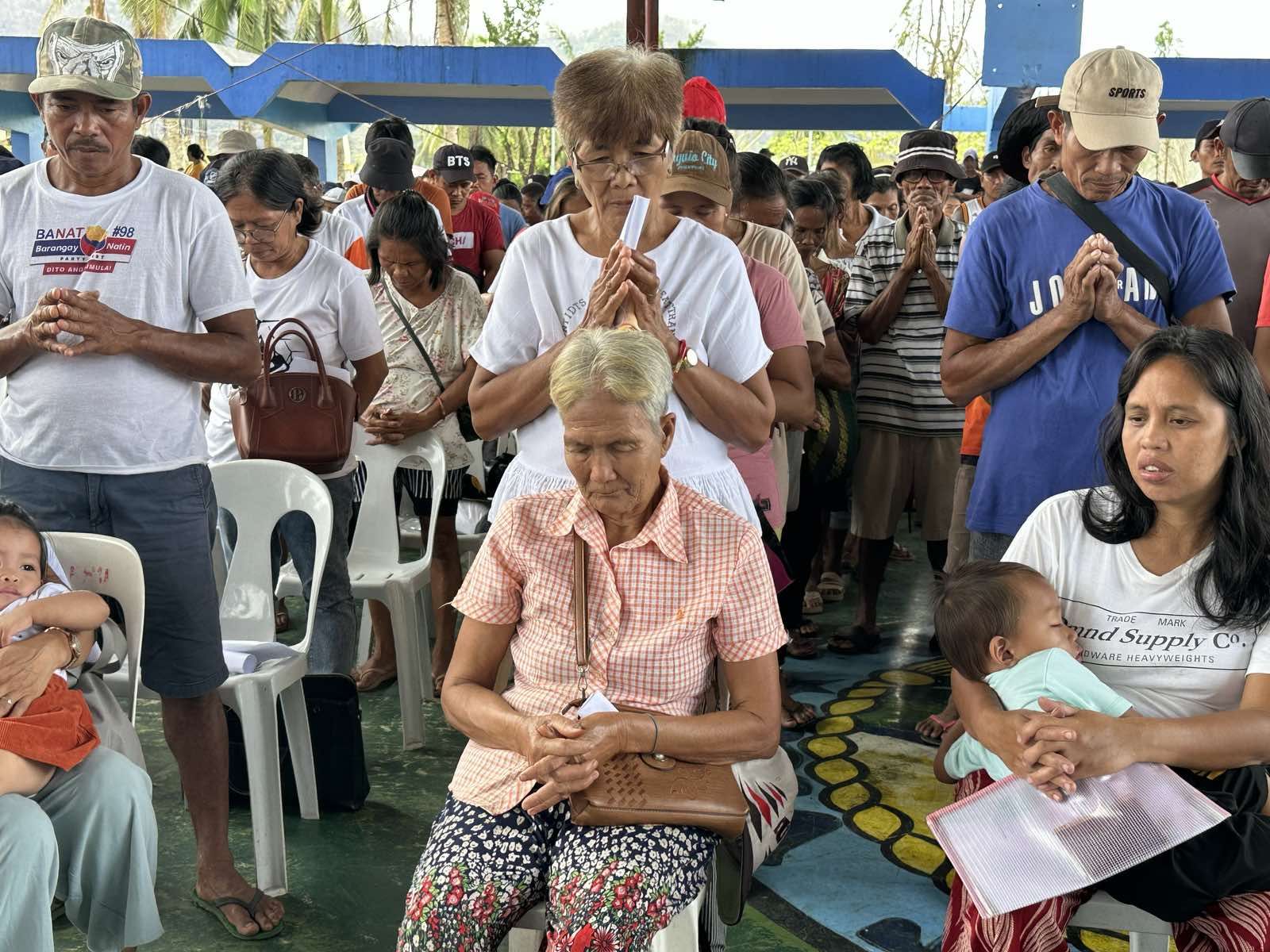 Residents in Viga spend a moment in prayer for the blessings of compassion and relief from Tzu Chi volunteers.
Residents in Viga spend a moment in prayer for the blessings of compassion and relief from Tzu Chi volunteers.
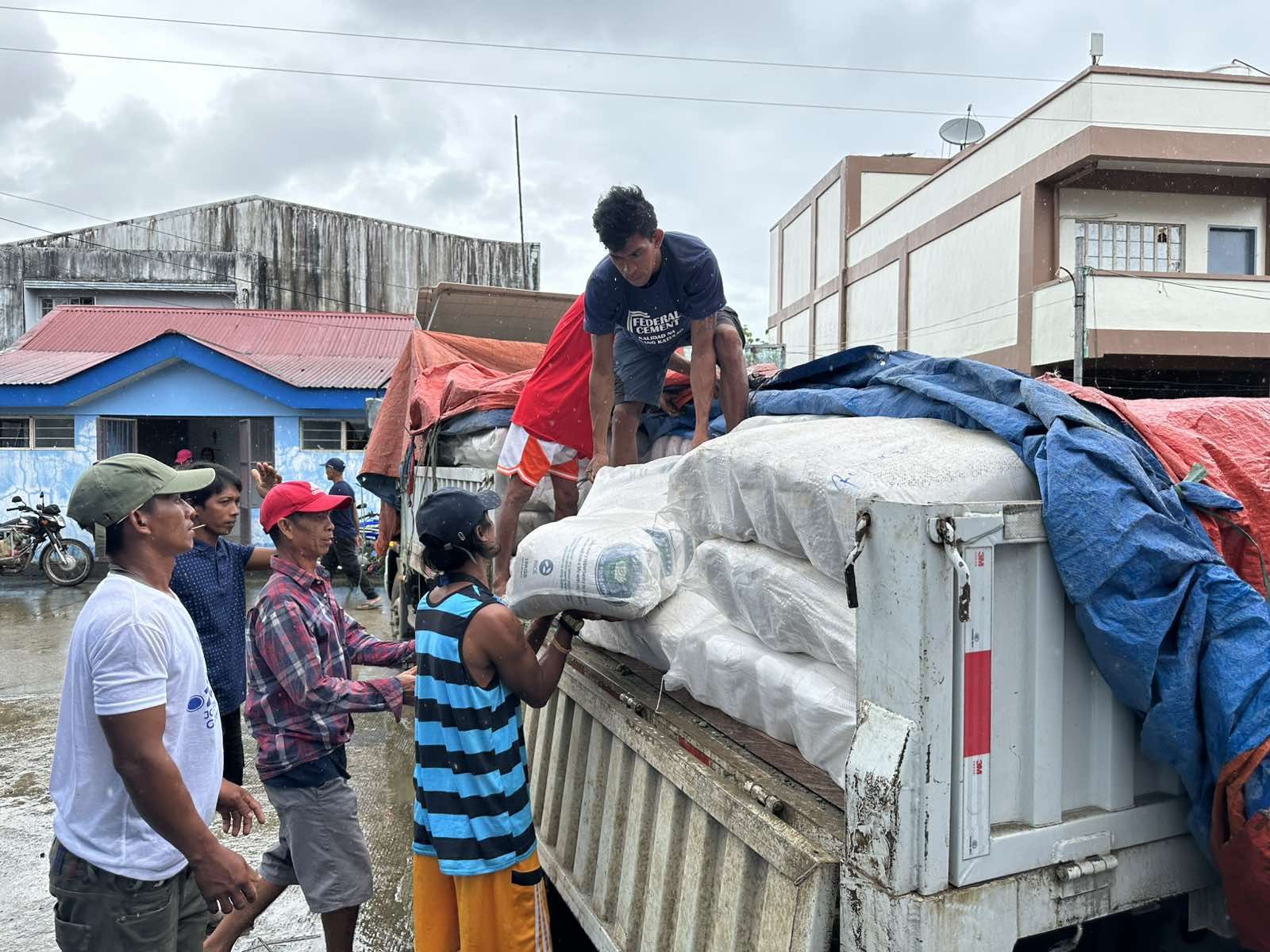 Local volunteers help unload sacks of rice for distribution in Viga.
Local volunteers help unload sacks of rice for distribution in Viga.
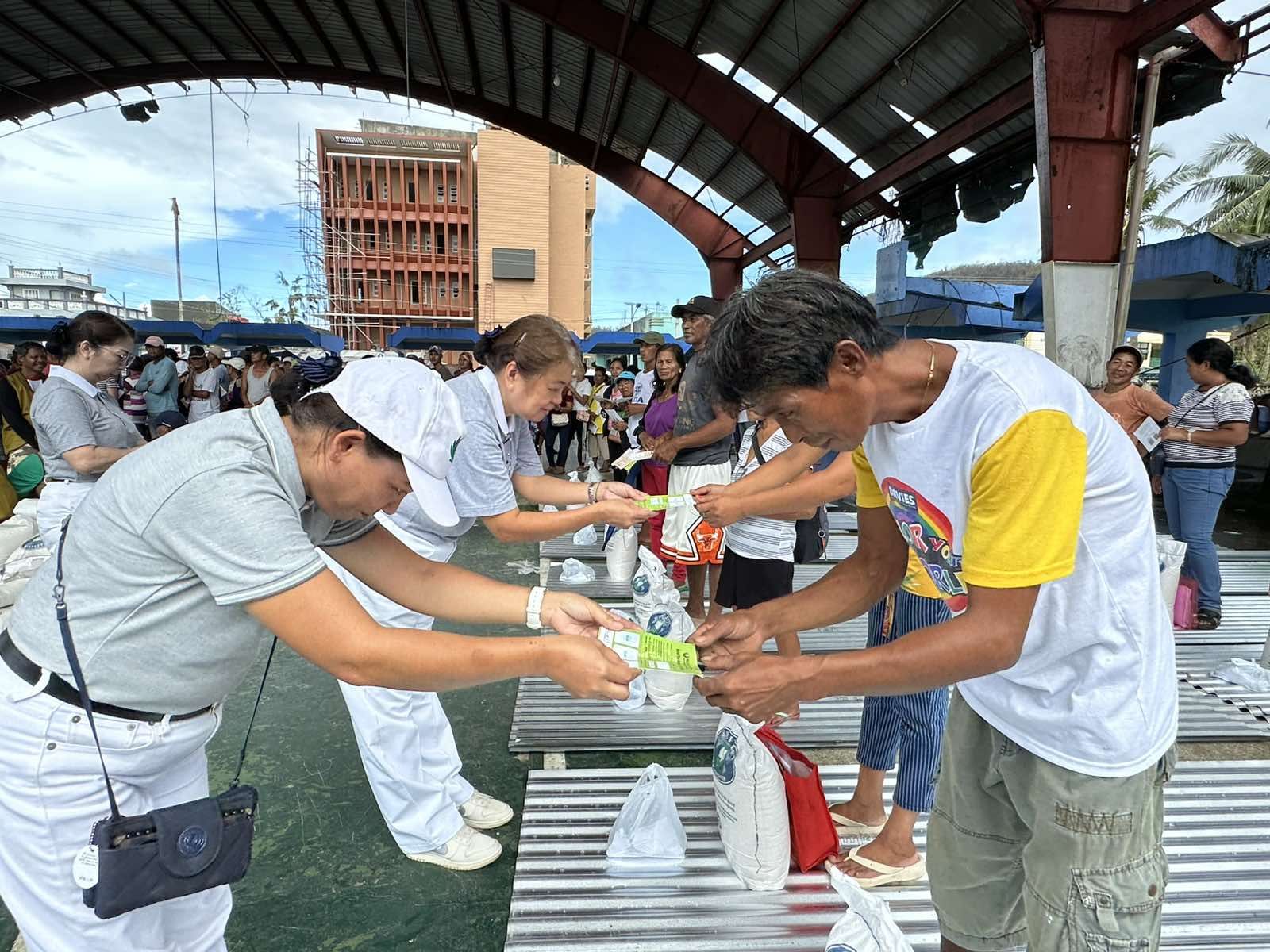 Families with totally damaged homes each received 10 pieces of 10-ft galvanized iron (GI) sheets, a kilo of umbrella nails, and a 10-kg sack of rice.
Families with totally damaged homes each received 10 pieces of 10-ft galvanized iron (GI) sheets, a kilo of umbrella nails, and a 10-kg sack of rice.
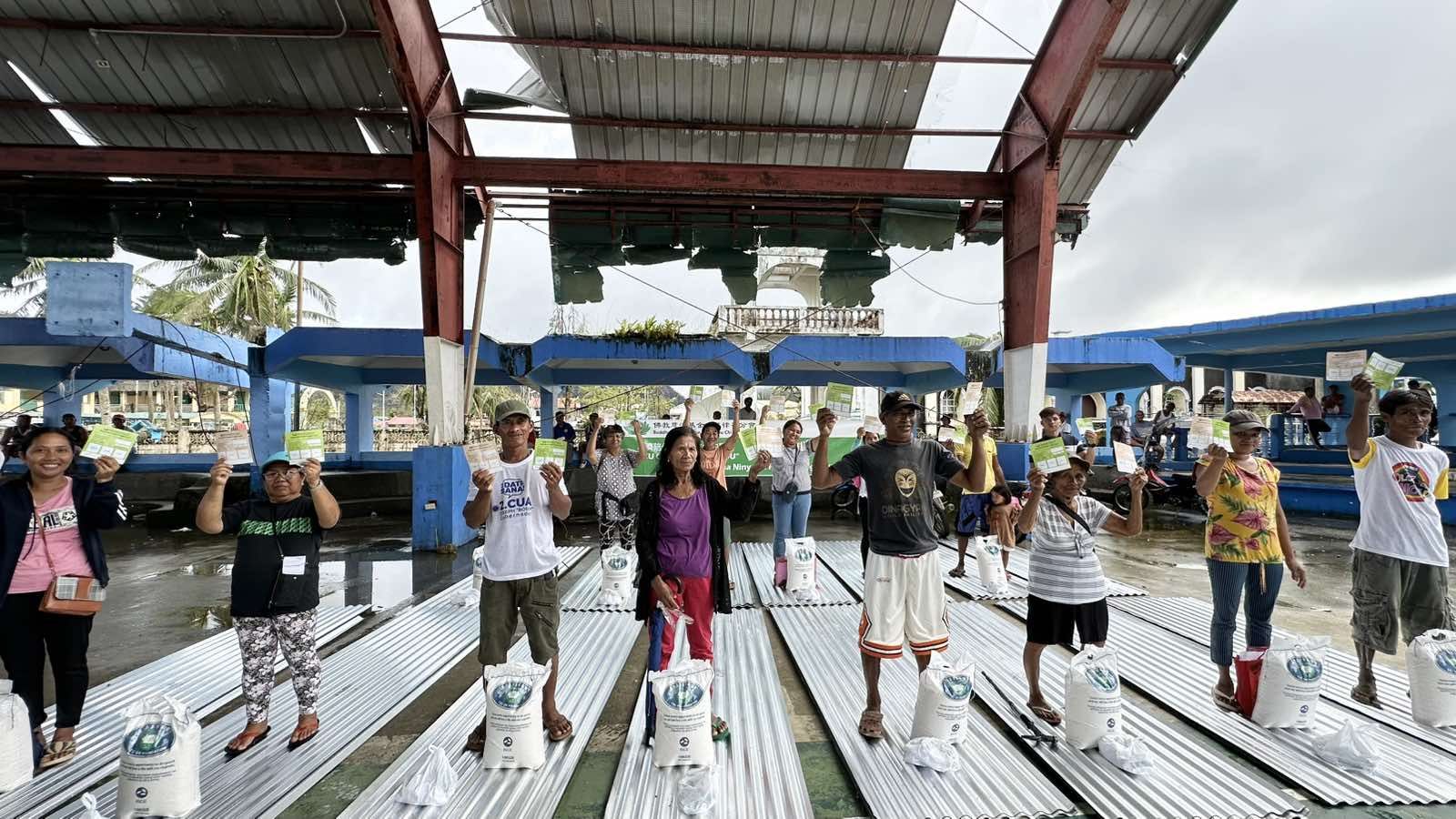 Families with totally damaged homes each receive 10 pieces of 10-ft galvanized iron (GI) sheets, a kilo of umbrella nails, and a 10-kg sack of rice.
Families with totally damaged homes each receive 10 pieces of 10-ft galvanized iron (GI) sheets, a kilo of umbrella nails, and a 10-kg sack of rice.
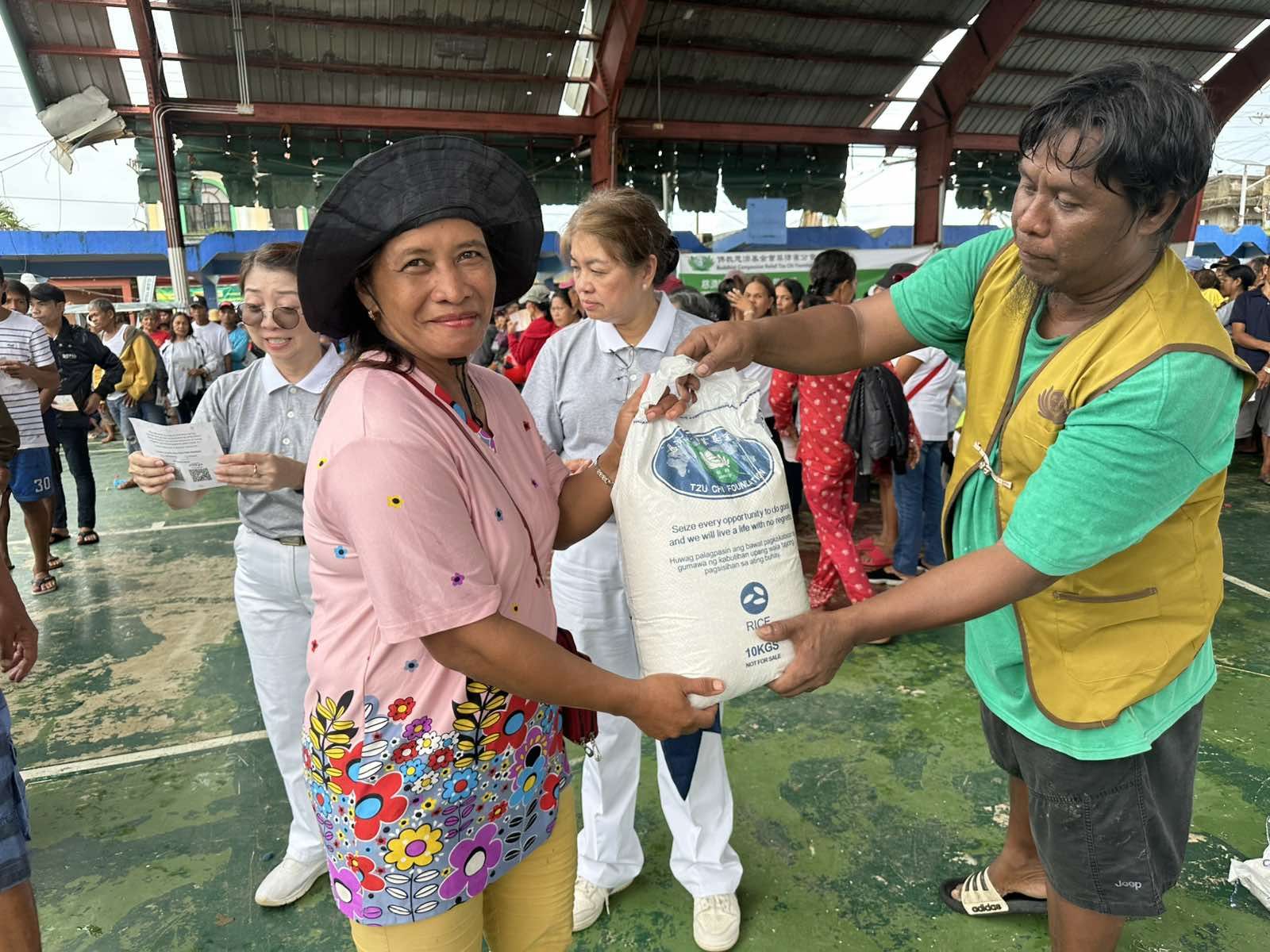 A woman from Viga claims her 10-kg sack of rice.
A woman from Viga claims her 10-kg sack of rice.
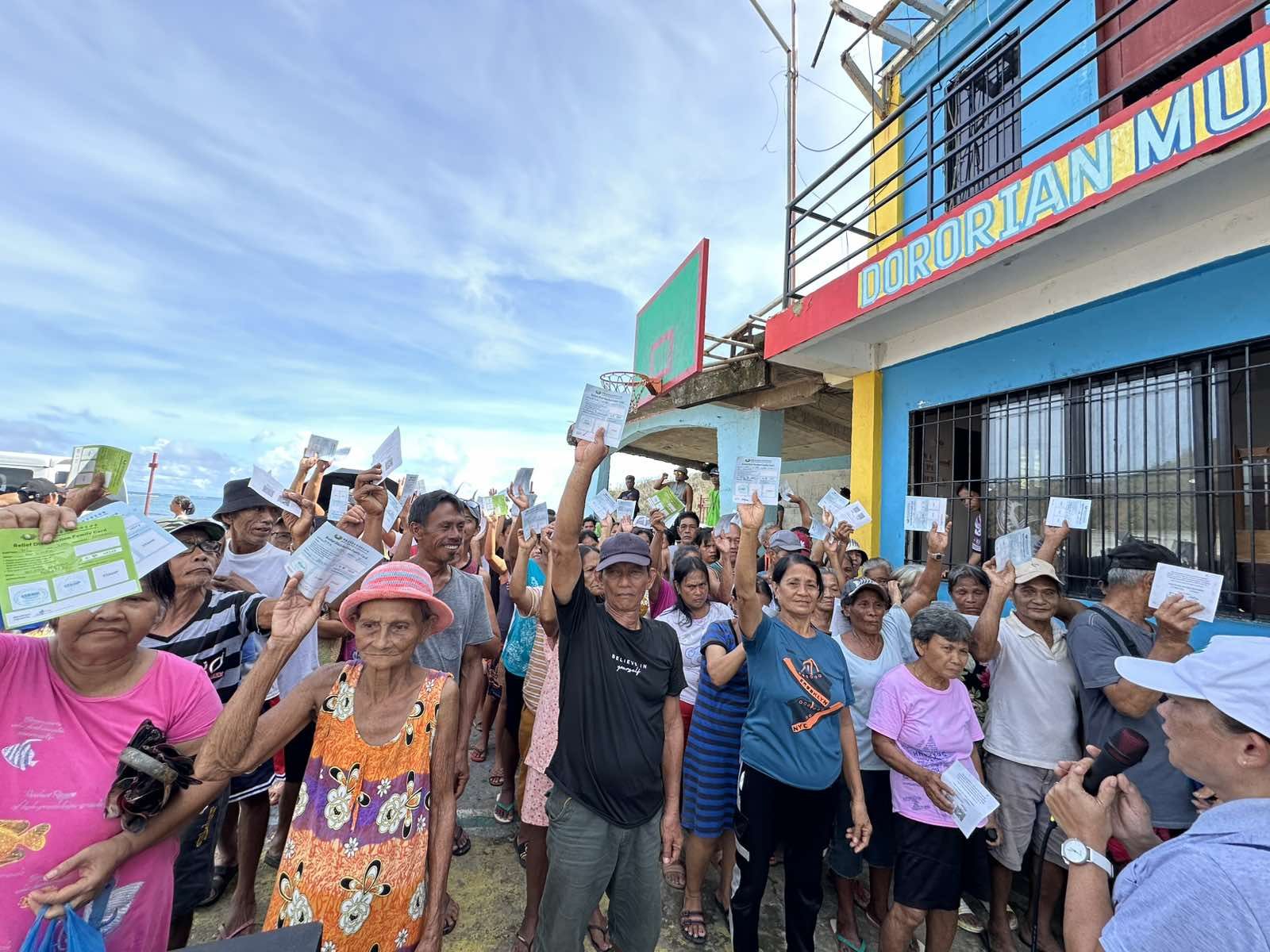 In Gigmoto, residents wave their claim stubs in the air before receiving their 10-kg sack of rice.
In Gigmoto, residents wave their claim stubs in the air before receiving their 10-kg sack of rice.
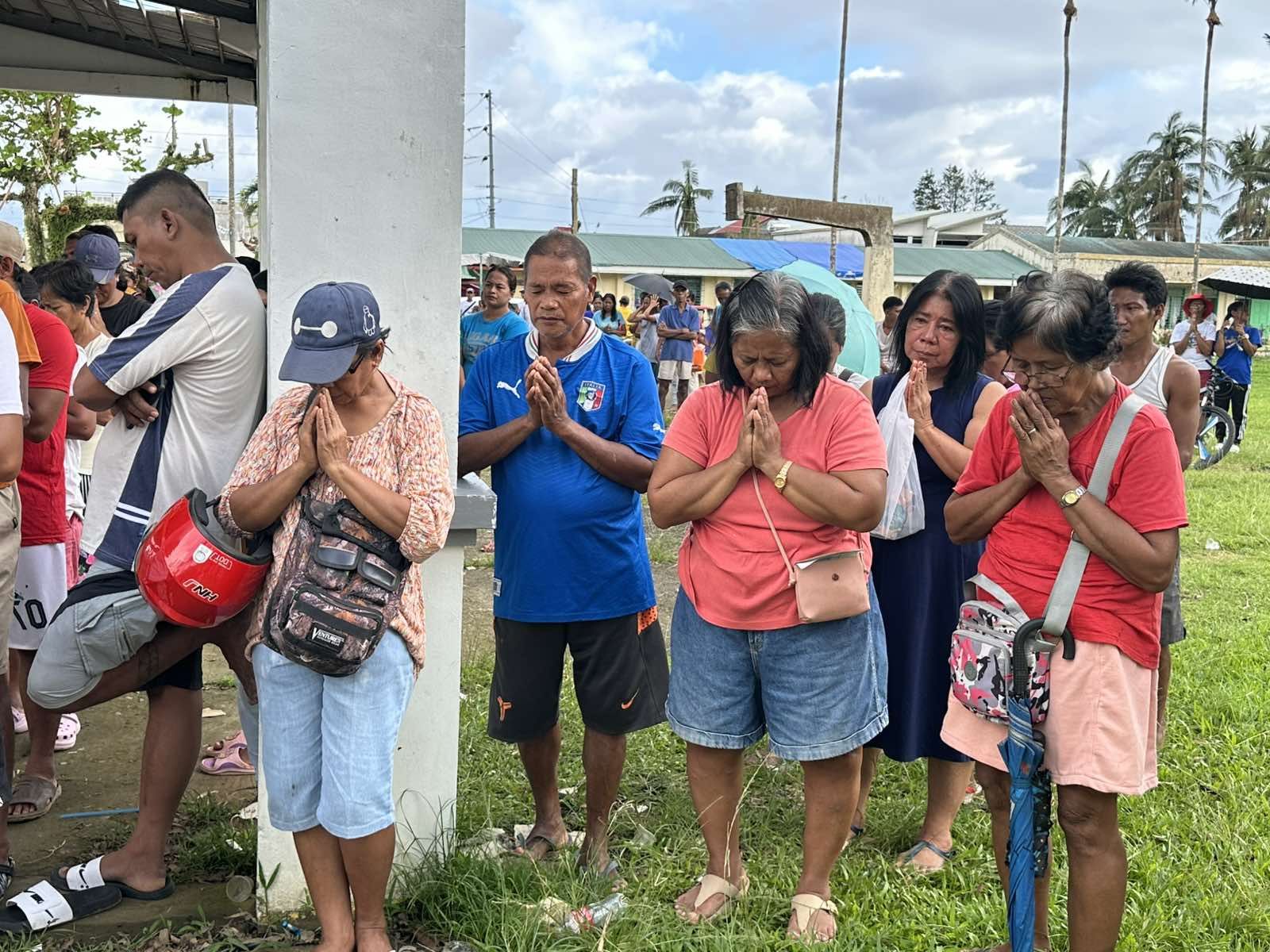 Viga beneficiaries clasp their hands in prayer.
Viga beneficiaries clasp their hands in prayer.
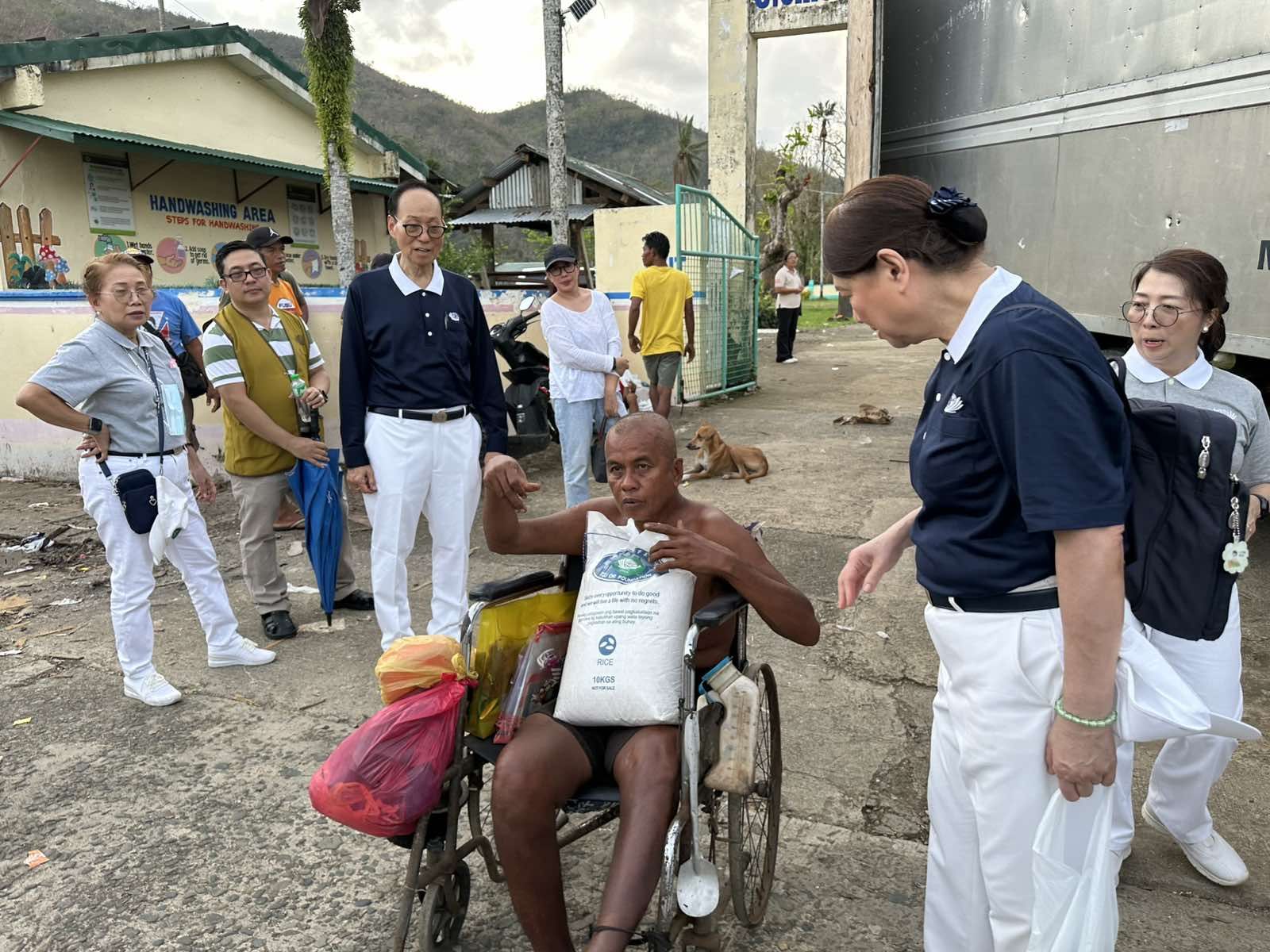 Tzu Chi Bicol head volunteer Antonio “Tony” Tan and his wife Therese (in blue) chat with a beneficiary in a wheelchair after he receives his 10-kg sack of rice.
Tzu Chi Bicol head volunteer Antonio “Tony” Tan and his wife Therese (in blue) chat with a beneficiary in a wheelchair after he receives his 10-kg sack of rice.
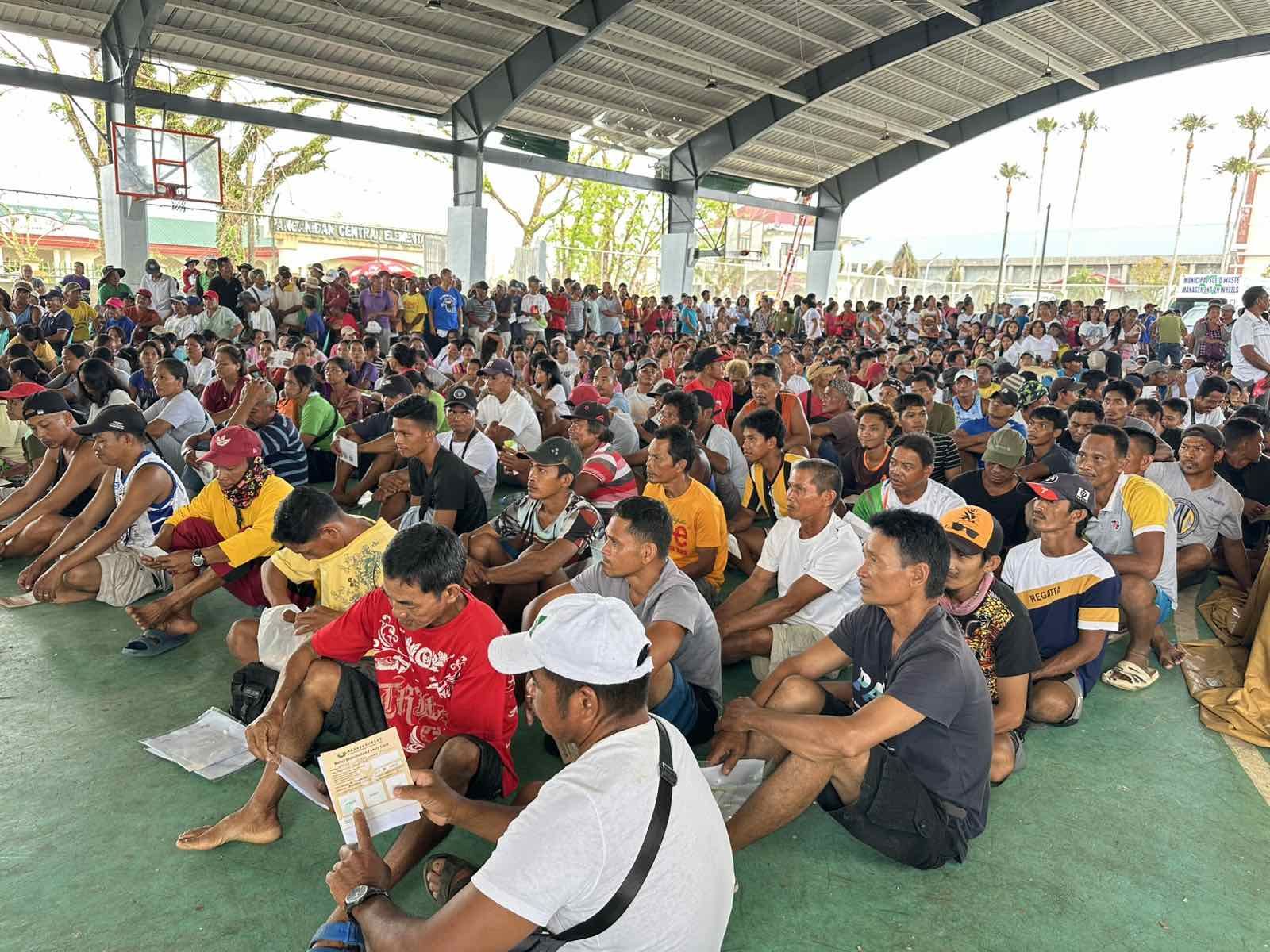 Over 700 families in Panganiban attend Tzu Chi’s short program before receiving their 10-kg sack of rice.
Over 700 families in Panganiban attend Tzu Chi’s short program before receiving their 10-kg sack of rice.
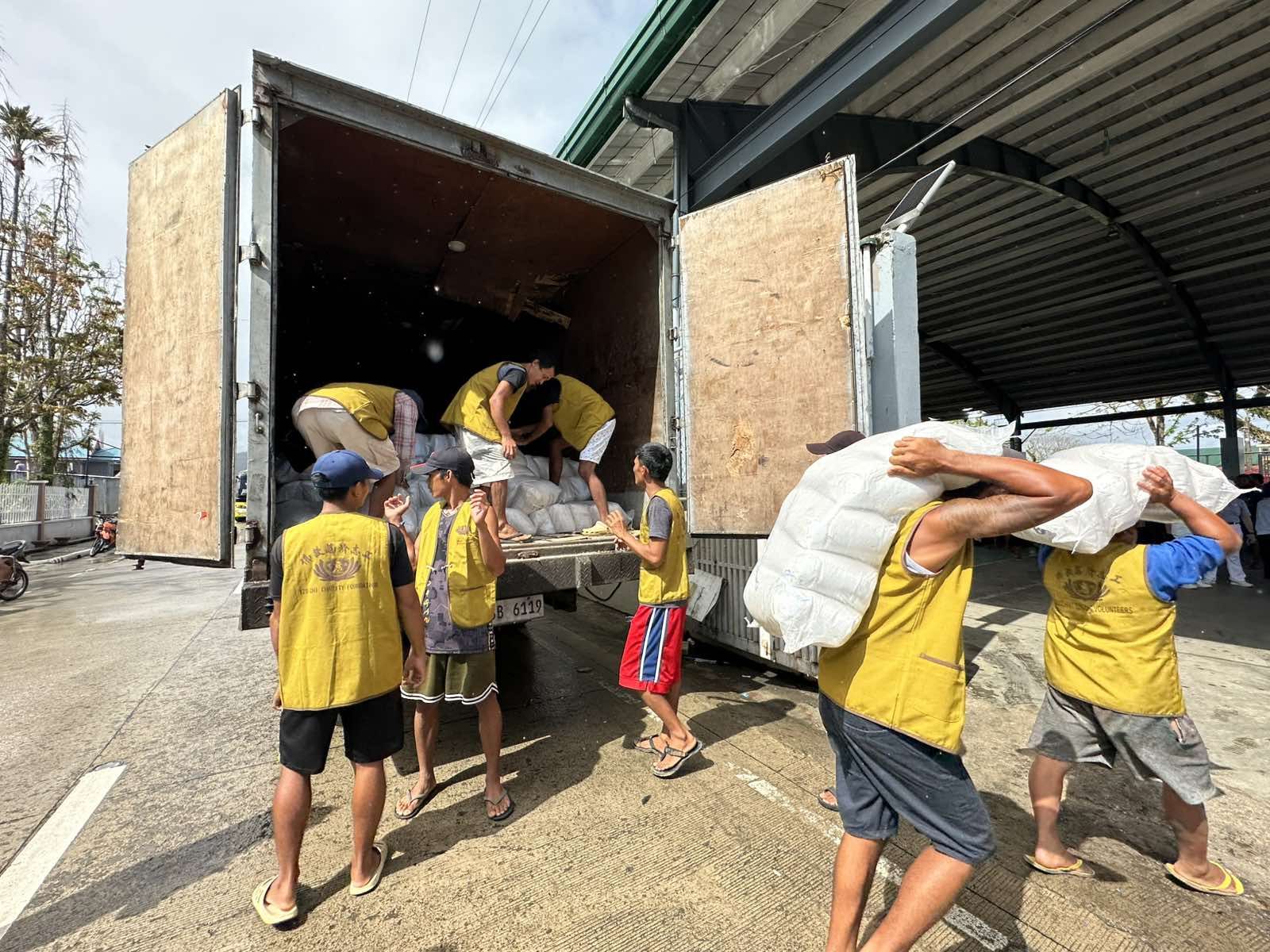 Happy volunteers in Panganiban transfer sacks of rice from a truck to the covered court.
Happy volunteers in Panganiban transfer sacks of rice from a truck to the covered court.
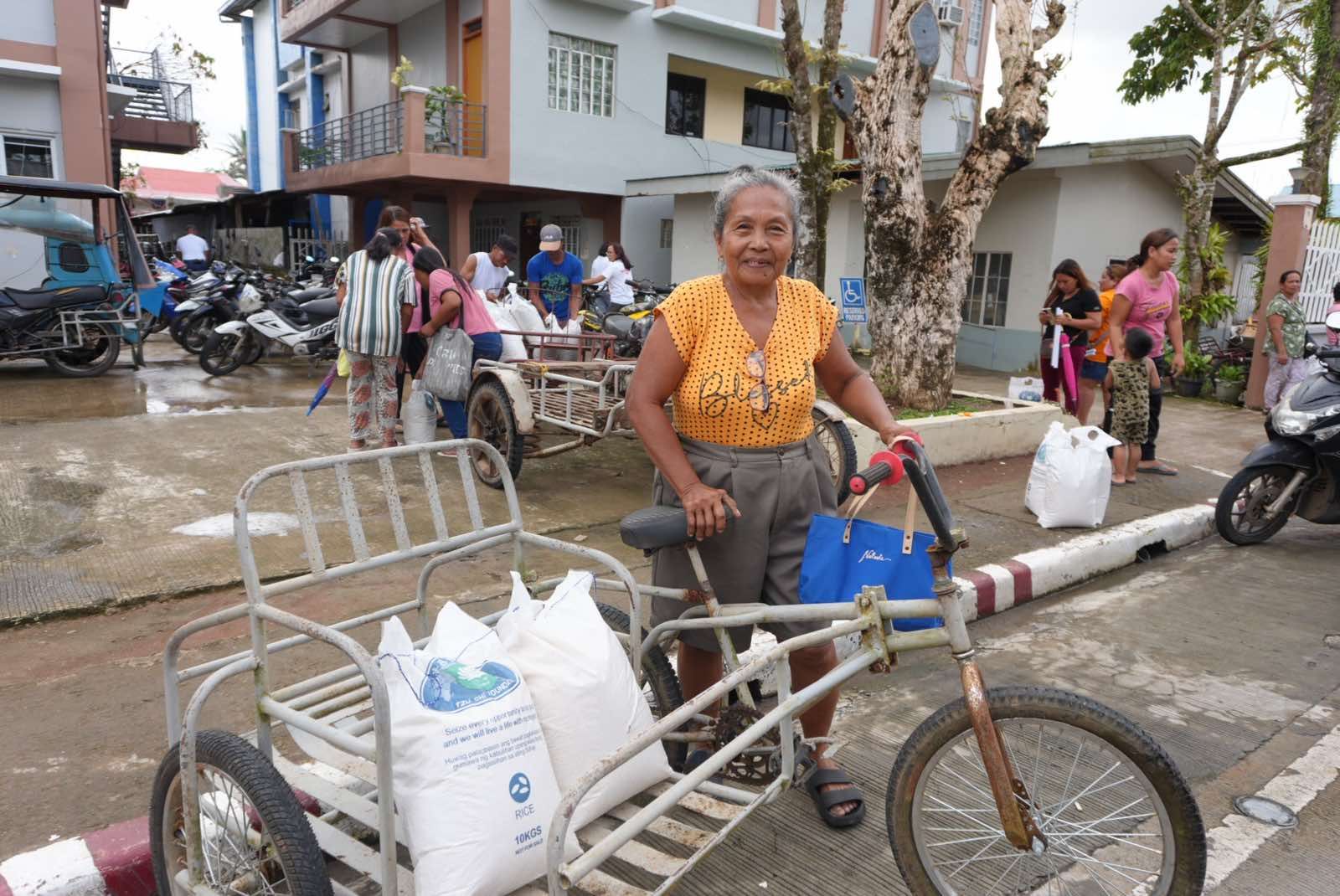 With her 10-kg sacks of rice on her pedicab, a woman from Panganiban is ready to go home.
With her 10-kg sacks of rice on her pedicab, a woman from Panganiban is ready to go home.
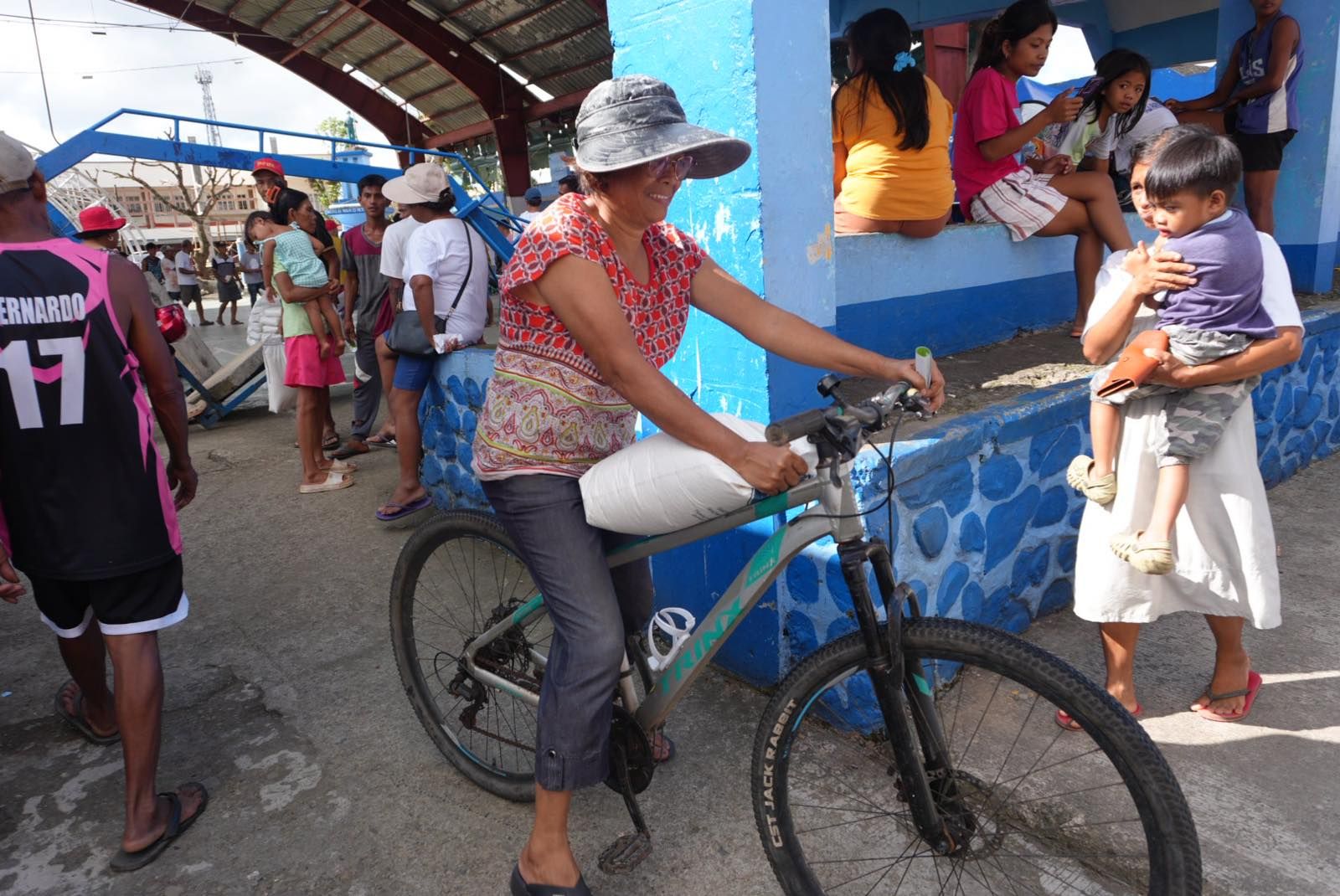 In Viga, a woman balances her 10-kg sack of rice on the frame of her bike.
In Viga, a woman balances her 10-kg sack of rice on the frame of her bike.
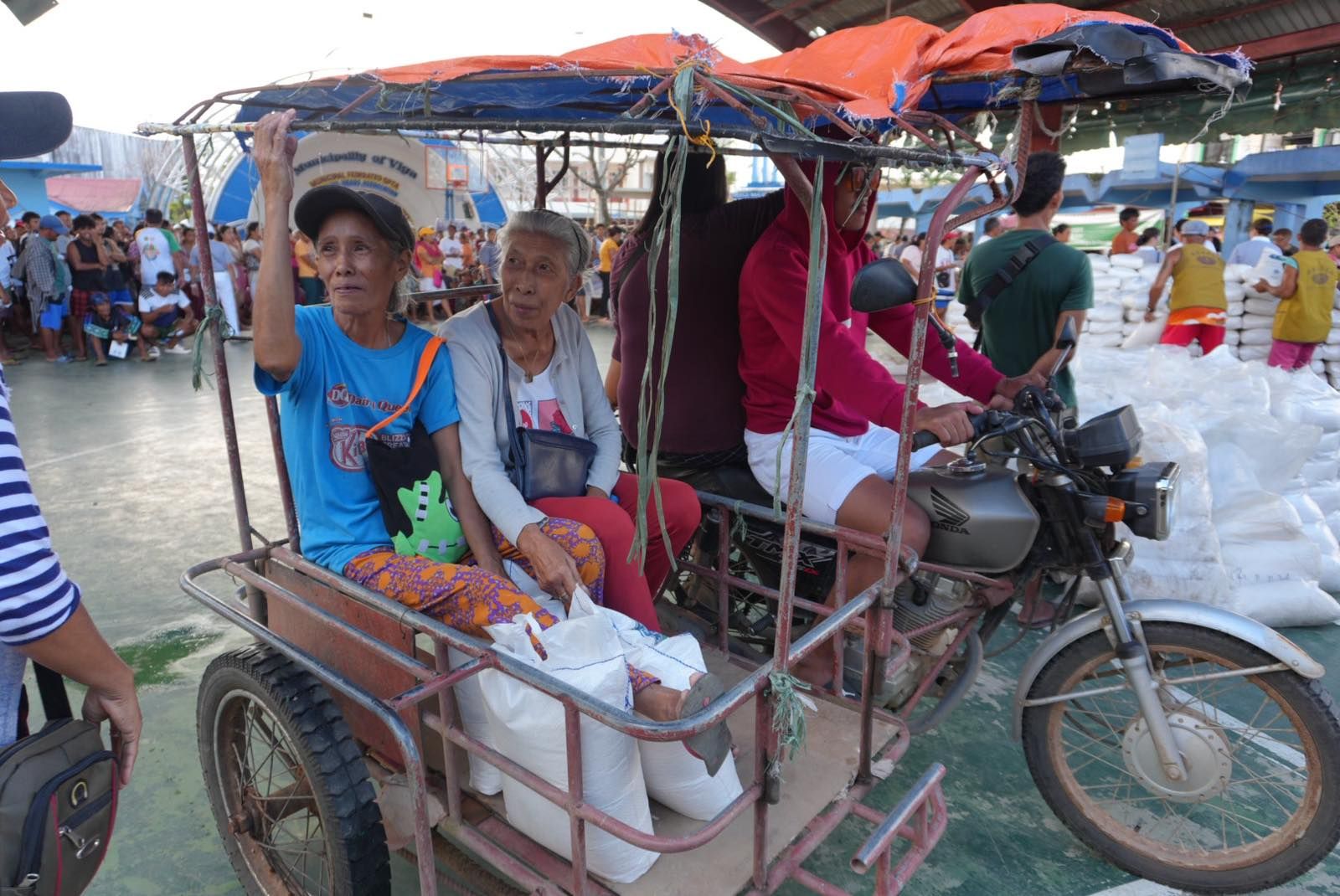 Seniors take a tricycle to bring them and their sacks of rice home.
Seniors take a tricycle to bring them and their sacks of rice home.
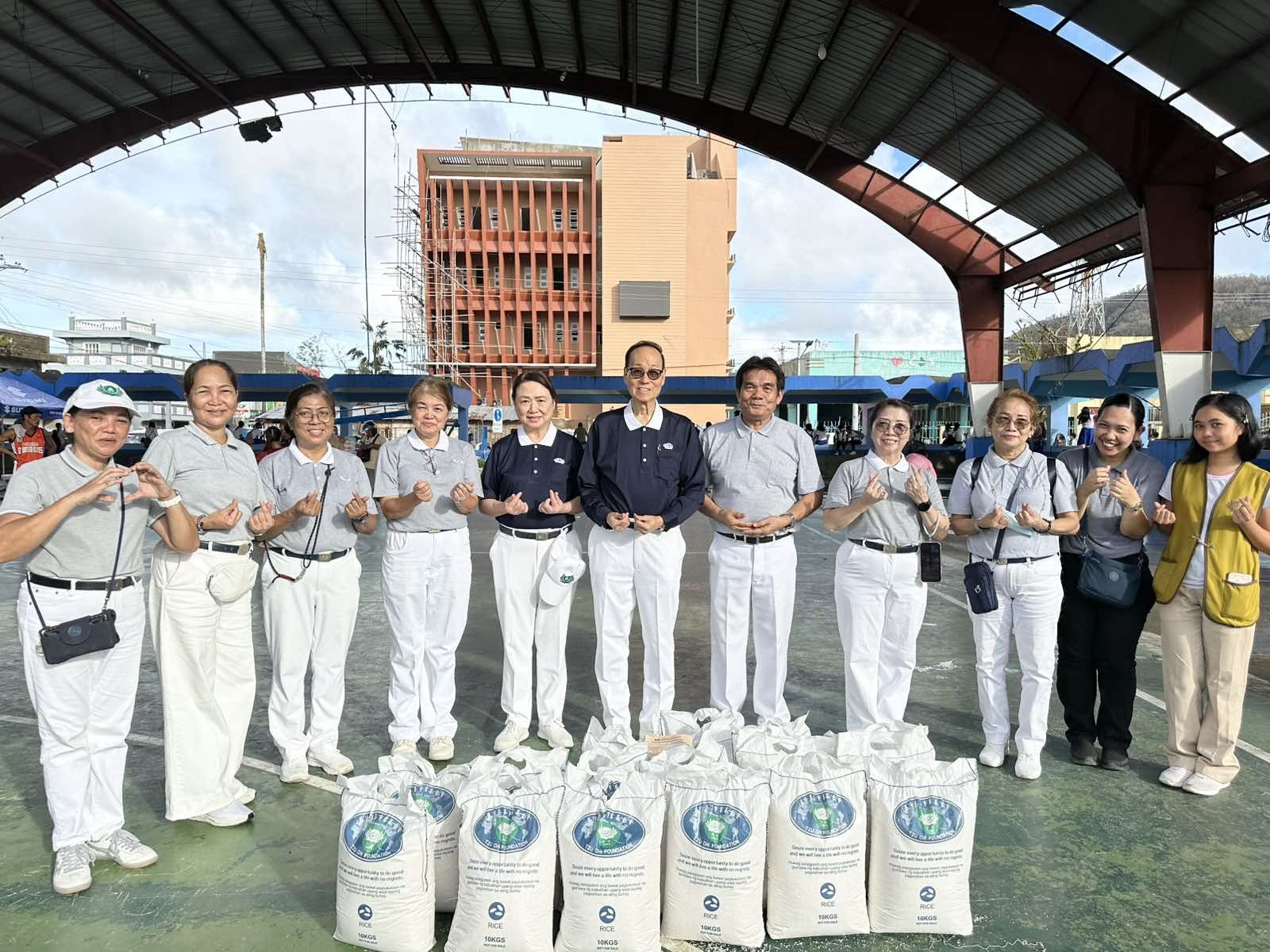 All smiles after another successful relief work are (from left) Analisa Amaranto, Salvacion Berces, Tess Reyes, Naty Candano, Therese Tan, Antonio “Tony” Tan, Norman Binalla, Jocelyn Chua, Juvy Binalla, Karen Palermo, and Maricar Bataller.
All smiles after another successful relief work are (from left) Analisa Amaranto, Salvacion Berces, Tess Reyes, Naty Candano, Therese Tan, Antonio “Tony” Tan, Norman Binalla, Jocelyn Chua, Juvy Binalla, Karen Palermo, and Maricar Bataller.





